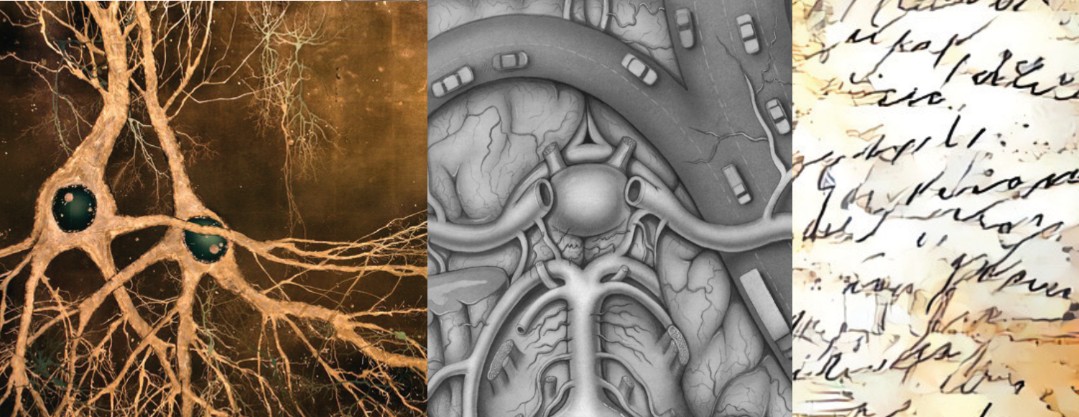Earlier this year, the Andrew W. Mellon Foundation awarded Lehigh a three-year grant to support the integration of humanities teaching and scholarship across all disciplines through research, curriculum development and undergraduate student experiences.
The direct result of that grant, a university-wide experimental interdisciplinary initiative called the Lehigh Humanities Lab, is now up and running.
The Lab, which is an independent campus entity, seeks to enrich teaching, research and co-curricular activities at Lehigh by bridging the gap between disciplines that might not traditionally collaborate through the incorporation of the humanities into other fields. Although the humanities are central to its mission, the Lab does not belong to a particular college, department or set of departments.
“This is a truly university-wide initiative,” says Michael Kramp, associate professor of English and director of the Humanities Lab as well as the film and documentary studies program.
Says Amanda Greene, the Andrew W. Mellon Postdoctoral Research Associate: “We’re addressing the fact that the contemporary university has atomized all of the disciplines into mostly professional tracks and lots of different departments, which is not really how knowledge production traditionally was. It’s a very recent phenomenon. So we’re trying to address that on both the research and the teaching side of things.”
An infusion of the humanities into a non-humanities course, says Greene, can help better prepare students for the workforce, instilling in them an ability to be more flexible and think more critically. An introductory materials science course, for example, could incorporate a history of science lesson about the invention of an important synthetic material like Bakelite. Another possible option would combine neuroscience and English in order to simultaneously teach students about both the biological mechanisms and the human experience of mental illness.
From a research standpoint, the Lab seeks to bring together scholars in a variety of disciplines to have meaningful conversations and build capacity for working on shared problems.
“Especially with the complex problems we’re dealing with now, we need multiple approaches from multiple disciplines to do anything,” says Greene. “So we’re trying to lay the groundwork for experimental approaches for that to be able to happen.”
Alan J. Snyder, Lehigh’s vice president and associate provost for research and graduate studies, agrees with Greene’s perspective on atomization of the disciplines and the importance of learning new ways. “We should set our sights on ‘audacious interdisciplinarity,’” he says, “in which scholars with depths in different areas begin to learn each other’s languages. The Humanities Lab can help us to learn how to do that well at Lehigh. It can also help us to re-center understanding of human experience, needs, and aspirations in building a research portfolio that’s responsive to public concerns.”
Kramp cites Duke University’s John Hope Franklin Humanities Institute, which houses a variety of humanities labs, as an example and an inspiration for Lehigh’s Lab.
“What happens when we get a bunch of people in different disciplines teaching and researching for a couple of years [on a specific topic]? We’re trying to create that environment here. ...The outcomes of having those conversations and developing a common language could be really profound,” says Kramp.
Participants should be open to “not necessarily having a set goal, but letting things be really iterative and emerge through a dialogue,” says Greene. “They should also come from places of respect. Both disciplines have to come together knowing that they’re getting something valuable from the other one.”
Both disciplines must be rigorous, says Kramp: “We don’t want one discipline to be of service to another.”
The Lab welcomes all Lehigh faculty and students to participate, and offers two funding levels for faculty research, as well as teaching grants for course development, programmatic promotion and course implementation. Details and the call for proposals can be found here.
In addition to Kramp and Greene, the Humanities Lab’s advisory board includes:
-
Paolo Bocchini, associate professor of civil and environmental engineering
-
Kate Bullard, research program development officer, Office for the Vice President of Research and Graduate Studies
-
William Crow, director, Lehigh Art Galleries and professor of practice, art, architecture and design
-
Suzanne Edwards, associate professor of English and director of the Humanities Center
-
Sabrina Jedlicka, associate professor and associate chair of materials science and engineering and associate professor of bioengineering
-
Jessecae Marsh, associate professor of psychology and director of the Health, Medicine, and Society program
-
Greg Reihman, associate vice provost, director of the Center for Innovation in Teaching and Learning, and adjunct professor of philosophy
-
Lorenzo Servitje, assistant professor of literature and medicine
-
Halcyon (Hal) Skinner, associate dean for research and associate professor, College of Health
-
Vassie Ware, professor of biological sciences and co-director of the Howard Hughes Medical Institute Bioscience program
In an announcement of the Mellon grant earlier this year, Lehigh President John D. Simon, who, along with Provost Pat Farrell, serves as co-principal investigator on the grant, emphasized the impact of incorporating the Humanities across disciplines: “Bridging disciplines in new ways to provide distinctive educational opportunities has long been an institutional hallmark at Lehigh. This effort coincides with major new initiatives, including the establishment of a new College of Health, that will significantly grow numbers of faculty and students over the next decade. We are excited to embrace this timely opportunity for sustainable infusion of the humanities across Lehigh’s academic culture with Mellon Foundation support.”





